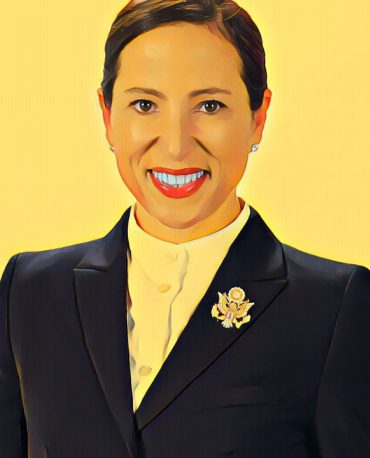Qualifications
We’re looking for someone who:
- Has a working understanding of the shipping and fishing industries, of offshore oil drilling and waterfront real estate development, and of any other activity that might occur along or floating on top the 4 million acres of various shorelines that the lieutenant governor will regulate as chair of the California State Lands Commission
- Can think big! As the chair of the California Commission for Economic Development, this person might have the opportunity to write an economic plan for the state of California. With luck, someone might even read it.
- Has a working understanding of state higher education policy, as the lieutenant governor will sit on the University of California Board of Regents and California State University Board of Trustees, which set education policies and approve tuition hikes
- Has the digital dexterity necessary to cut a ribbon upon request
- Able to succinctly describe the position when inevitably asked, “so, what exactly does the lieutenant governor do, anyway?”
While applicants are under no obligation to belong to the same political party as the governor-elect, the ideal candidate will be a team player. Replacing the governor’s judicial appointees during his or her trip out of state, while technically legal, could result in the governor suing the lieutenant governor.
This should be considered a temporary position. Of the previous 49 successful applicants, only 10 have been subsequently promoted to governor. So don’t get your hopes up.
Hiring Update
While this race isn’t grabbing the headlines of the governor’s contest, it’s drawn some top talent and big dollars. State Sen. Ed Hernandez of Azusa will square off in November against fellow Democrat Eleni Kounalakis, a Sacramento businesswoman and former U.S. ambassador to Hungary.
Kounalakis, who’s making her first bid for elected office, edged out Hernandez in the June primary after trailing just behind him in California Democrats’ endorsement vote this spring. She’s benefitted from multi-million dollar contributions her father, developer Angelo Tsakopoulos, made to an independent expenditure committee supporting her. After four years in the state Assembly and eight in the state Senate, Hernandez has termed out of legislative office. He comes from a medical background, having previously served as president of the California State Board of Optometry, an experience reflected in his platform’s emphasis on affordable and accessible healthcare.
Contributions to candidates for lieutenant governor
Contributions to independent expenditure committees
Create a Side-by-Side-Comparison
1
Click or tap the dropdown to choose the issue you want to see the candidate's stances on.
- Education
- Environment
- Housing
How would you make a college education more affordable in California?
Eleni Kounalakis:
Like her opponent, she says she would oppose future tuition hikes and advocate for increases in Cal Grant funding. She says that aid should be expanded to benefit more middle-class students.
Kounalakis also says she wants to push universities to make it easier for students to graduate on time by being more flexible with course offerings and making sure that students understand graduation requirements. “The idea that these are four-year universities is just not real to young people matriculating today—they’re looking at five years, six years, seven years before they’re able to graduate.”
Ed Hernandez:
Like his opponent, he says he would oppose future tuition hikes and advocate for increases in Cal Grant funding. He says that aid should be expanded to cover non-tuition costs like housing, transportation and childcare. “The emphasis should be on the kids that have the least amount of resources to try to help them get through the system.”
Should another state university be built in Stockton?
Eleni Kounalakis:
Maybe, but leaning towards yes. “Anytime you have a community—both the private citizens and the elected officials—who are so fired up about something, I think it’s important to honor that and spent the time to look and see if it’s feasible.”
Ed Hernandez:
Undecided. “It would be easy for me to say, ‘let’s build more UC schools and more CSUs.’ Well, how do I know if that’s the real answer?”
The Coastal Act guarantees public access to California’s beaches. Do you think there should be exceptions to that rule? (For example, at Hollister Ranch, north of Santa Barbara, the state Coastal Commission recently gave landowners the right to keep the beach largely private).
Eleni Kounalakis:
She supports keeping California's coast accessible to the public, with exceptions if it’s a matter of public safety or a temporary closer to restore the wildlife or natural resources. Even so, she has not taken a position on the Hollister Ranch case.
Ed Hernandez:
He says “the entire public should have access” to the state’s beaches and that the shoreline at Hollister Ranch should “not be to the exclusive benefit of the wealthy.” On the Land Commission, Hernandez says he would “explore all options to ensure the public beach is enjoyed by the public” including seizing the land through eminent domain.
What should the state do to reduce the cost of housing?
Eleni Kounalakis:
For students, she says she wants to make sure that universities are not “filling other budget gaps” by charging students massive premiums over cost for housing.
For the state as a whole, Kounalakis supports Proposition 1 (a $4 billion affordable housing bond) and opposes Proposition 10 (which would allow cities to expand rent control laws). She says that the state needs to build much more housing and while local governments “know best where the housing should go,” the state should provide financial and infrastructure support. She has said that SB 827 (a bill that would have required local governments to allow dense development around public transportation corridors, but which failed in the Senate this year) was “maybe a little too bold.”
Ed Hernandez:
For students, he says he wants to provide additional subsidies to developers to build affordable student housing.
For the state as a whole, he supports Proposition 1 (a $4 billion affordable housing bond) and is undecided on Proposition 10 (which would allow cities to expand rent control laws). He says he wants to “have a bigger conversation” about whether the state should require local governments to permit more housing, though he did not say that he outright supports such policies. He has said the state should also have a “conversation” about a bill like SB 827 (a bill that would have required local governments to allow dense development around public transportation corridors, but which failed in the Senate this year).
by Felicia Mello
Lt. Gov. candidates Ed Hernandez and Eleni Kounalakis debate in San Francisco.
Story
by Judy Lin, CALmatters
Story
by Ben Christopher, CALmatters
Story
by Laurel Rosenhall and Matt Levin
Story
by Joe Garofoli, The San Francisco Chronicle
Story
by Christopher Cadelago, The Sacramento Bee
Editorial
by Los Angeles Times
Editorial
by The Mercury News/East Bay Times












